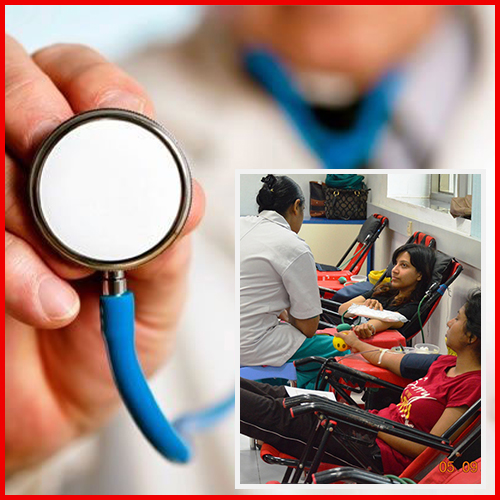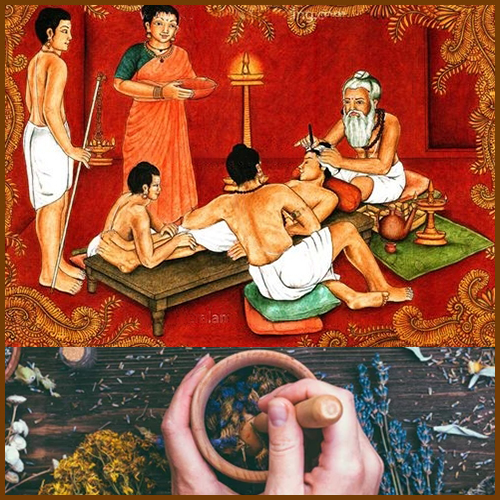Services

EDUCATION ASSISTANCE
Our NGO also play a significant role in providing education assistance to underprivileged individuals and communities. Education is a powerful tool for empowering individuals, breaking the cycle of poverty, and promoting social and economic development. Here are some ways in our NGO offer education assistance: Our NGO may provide scholarships or sponsorships to financially disadvantaged students, enabling them to access quality education. These scholarships can cover tuition fees, textbooks, school supplies, and other educational expenses. 1. Access to Education: Education is a fundamental human right, yet many children and young people around the world face barriers to accessing quality education. Our NGO can play a vital ro
le in bridging this gap by providing financial support, scholarships, and resources to help underprivileged students attend school. 2. Promoting Gender Equality: In many parts of the world, girls face significant barriers to education. By providing education assistance, We can promote gender equality and empower girls to overcome societal obstacles and achieve their full potential 3. Reducing Child Labor and Exploitation: Lack of access to education often leads to child labor and exploitation. Education assistance can keep children in school, protecting them from hazardous labor and giving them hope for a brighter future. Education assistance is a crucial intervention that promotes equality, empowers individuals, and contributes to the overall development of societies. By providing access to education, we can create lasting positive impacts on the lives of individuals and communities, fostering a brighter and more equitable future for all.
MEDICAL CAMP
Medical camps are community-based healthcare initiatives organized by Our NGO and healthcare organizations to provide medical services and support to underserved and remote areas, as well as to vulnerable populations with limited access to healthcare. These camps are usually temporary setups that bring medical professionals, support staff, and essential medical resources to the location to address the healthcare needs of the community. Here's how medical camps typically work. Blood donation camps provide an opportunity to raise awareness about the importance of voluntary blood donation. Our NGOs can educate the public about the need for regular donations and debunk myths or misconceptions related to blood donation. 1. ENT Servi

ces: In the ENT section of the camp, medical professionals conduct ear examinations, diagnose hearing issues, treat common ear infections, and provide consultations for nose and throat conditions. 2. Dental Services: The dental section of the camp offers dental check-ups, oral health screenings, dental cleanings, fluoride treatments, and minor dental procedures like fillings and extractions. 3. ENT/Dental medical camps are vital for addressing common ear and dental health issues within communities that may not have access to specialized healthcare services. By providing diagnostic, treatment, and educational services, these camps contribute to improved ear and dental health outcomes and overall well-being. 4. Medicine Distribution: NGOs may supply free or subsidized medicines to patients during medical camps, ensuring they receive necessary treatments without financial barriers. Overall, blood donation camps organized by us, play a critical role in saving lives, raising awareness, and fostering a sense of social responsibility. By facilitating voluntary blood donation, these camps contribute significantly to the well-being of society and the overall healthcare system.

PLANT DISTRIBUTION
Plant distribution programs are initiatives undertaken by Our NGO and environmental organizations to distribute plants and tree saplings to individuals, communities, or public spaces for various purposes, including environmental conservation, forestation, and beautification. These programs aim to promote sustainable practices, biodiversity, and the restoration of ecosystems. Here's how plant distribution programs typically work: 1. Environmental Conservation: Plant distribution programs can focus on distributing native trees and plants, which are essential for biodiversity conservation and ecosystem restoration. NGO can work towards reforesting degraded areas, protecting natural habitats, and combating deforestation. 2. Climate
Change Mitigation: Trees play a crucial role in mitigating climate change by absorbing carbon dioxide from the atmosphere through photosynthesis. Planting trees on a large scale can help offset carbon emissions and contribute to climate change mitigation efforts. 3. Green Cities and Urban Spaces: NGOs can collaborate with urban authorities to distribute plants for urban greening initiatives. Adding green spaces in cities enhances air quality, reduces urban heat island effects, and provides recreational areas for residents. We play a vital role in promoting plant distribution efforts that are sustainable, ecologically responsible, and essential for the well-being of ecosystems and human societies.
SKILL DEVELOPMENT PROGRAMME
Our NGO play a crucial role in skill development programs by designing, implementing, and managing initiatives that aim to enhance the employability and livelihood prospects of individuals and communities. Skill development programs are powerful tools for promoting economic growth, empowering individuals, and fostering social inclusion. By investing in the skills of people, we can contribute to poverty reduction, sustainable development, and the overall improvement of the well-being of individuals and communities. 1. Training Delivery: We provide the actual training and skill-building activities. Depending on the nature of the skills being taught, this could involve classroom-based training, hands-on workshops, practical exerci

ses, on-the-job training, or a combination of these methods. 2. Program Design: Based on the identified skill gaps and the needs of the community, our NGO design skill development programs that are tailored to address those gaps. These programs may focus on a wide range of skills, from technical skills like computer literacy, vocational training, and trade skills to soft skills like communication, problem-solving, and teamwork. 3. Empowerment and Self-Sufficiency: Skill development programs empower individuals with the knowledge and abilities to become self-sufficient. By acquiring marketable skills, people can improve their employment prospects and economic independence. 4. Certification and Recognition: Upon successful completion of the skill development program, we provide participants with certificates or other forms of recognition. These certificates can enhance participants' employability and demonstrate their newly acquired skills to potential employers. 5. Empowerment and Community Development: By imparting valuable skills, NGOs contribute to the overall empowerment and development of the community. Skilled individuals become more self-reliant, which has a positive impact on the community's socio-economic development. Our NGO play a vital role in skill development programs like spoken English classes and computer classes by making education and training accessible, inclusive, and tailored to the needs of the community. Our goal is to help individuals acquire valuable skills that can significantly improve their livelihoods and open up new opportunities for personal and professional growth.

SWACCHA BARATH WORK
Swatch Bharat Abhiyan, also known as the Clean India Mission, is a government-led cleanliness and sanitation campaign in India. While the campaign is primarily driven by the government, Our NGO have actively participated and contributed to the Swatch Bharat initiative in different ways. Some of the significant work done by us in support of Swatch Bharat includes: 1. Solid Waste Management: Our NGO can promote and implement solid waste management practices, including waste segregation, recycling, and composting. This helps in reducing the burden on landfills and promotes environmental sustainability. 2. Construction of Toilets: We can collaborate with the government or raise funds to construct toilets in areas where open defeca
tion is prevalent. Building toilets not only improves sanitation but also enhances the dignity and safety of individuals, particularly women and girls. 3. School Sanitation Programs: We also conduct sanitation and hygiene programs in schools to teach students about the importance of cleanliness and proper sanitation practices. They may also build sanitation facilities in schools to improve overall hygiene standards. 4. Community Mobilization and Awareness: We have been instrumental in mobilizing communities and creating awareness about the importance of cleanliness, sanitation, and hygiene. They conduct awareness campaigns, workshops, and educational programs to promote behavior change and encourage people to adopt hygienic practices. It's important to note that the specific works of our NGO in the Swatch Bharat campaign may vary based on their focus areas, geographical locations, and available resources. However, their collective efforts have significantly contributed to the success of the campaign in addressing sanitation and cleanliness challenges in India.
FINANCIAL ASSISTANCE FOR FARMING
Our NGO (Non-Governmental Organizations) can provide crucial financial assistance and support to farmers in various ways. Agriculture is a vital sector in many countries, and farmers often face financial challenges due to factors such as unpredictable weather conditions, market fluctuations, lack of access to credit, and limited resources. Farming and farmers play a crucial role in society, economies, and the overall well-being of communities. Here are some key reasons highlighting the importance of farming and farmers: 1.Farm Input Subsidies: Our NGO provide subsidies or grants to farmers to help them purchase essential agricultural inputs like seeds, fertilizers, pesticides, and farming tools at reduced costs, enabling them t

o improve their yields and income. 2. Food Security: Ensuring a stable and sustainable food supply is essential for national and global food security. Farmers work tirelessly to produce enough food to meet the growing demands of an increasing population. 3. Economic Impact: Agriculture is a significant driver of economic growth and development in many countries. It contributes to the GDP and provides employment opportunities for millions of people in rural areas. 4. The situation of agriculture, particularly in some regions, can be challenging due to various financial issues. Here are some of the present bad situations that agriculture faces through a financial lens: High Input Costs: One of the significant financial challenges for farmers is the rising cost of agricultural inputs such as seeds, fertilizers, pesticides, and machinery. As input costs increase, farmers' profit margins are squeezed, making it harder for them to sustain their livelihoods. Land Ownership and Tenure Issues: In some areas, farmers may face challenges related to land ownership and tenure. Land disputes and insecure land rights can impact their ability to invest in their farms and access financial support. We play a significant role in complementing government efforts and filling gaps in financial services and support for farmers. Their interventions can contribute to the economic empowerment of farmers, improved food security, and sustainable agricultural practices in the communities they serve.

MOTIVATIONAL CLASSES FOR STUDENTS / EMPLOYEES
Motivation helps us to achieve our goals.It fills energy which encourages us and makes our path easyMotivation fills hope and if a person is hopeful, he can do anything and will fill a different level of confidence.A motivated person is always optimistic and will never feel depressed. An optimistic view is very necessary to live a peaceful life. Non-Governmental Organizations (NGOs) play a significant role in conducting motivational classes and workshops. These organizations are often driven by a social mission and aim to address various societal issues and challenges. When it comes to motivational classes, NGOs can fulfill several important roles: Empowerment and Skil
l Development: NGOs can organize motivational classes that focus on empowering individuals and communities by providing them with valuable skills and knowledge. These classes can cover a wide range of topics, including personal development, communication skills, leadership, goal-setting, and self-confidence, among others. By equipping individuals with these skills, NGOs help them become more self-reliant and confident in pursuing their aspirations. Inspiration and Encouragement: Motivational classes conducted by NGOs are designed to inspire and encourage participants to overcome obstacles and challenges. Through real-life success stories and motivational speakers, these classes create a positive and supportive environment where individuals can believe in their potential and capabilities. Promoting Positive Mindset and Mental Well-being: NGOs recognize the importance of mental well-being in personal growth and development. Motivational classes conducted by NGOs often emphasize the importance of a positive mindset, resilience, and emotional well-being. They may also incorporate techniques like mindfulness and stress management to help participants cope with challenges and setbacks. NGOs contribute significantly to motivational classes by empowering individuals, providing targeted support, promoting mental well-being, building a sense of community, and advocating for positive change. Through these classes, they play a vital role in fostering personal growth, development, and positive social impact.
FREE AYURVEDIC MEDICINE
Ayurveda medicine has been practiced for thousands of years and continues to be relevant in modern times due to its holistic approach to health and well-being. Here are some of the reasons why Ayurveda medicine remains a significant and valuable system of healthcare NGOs (Non-Governmental Organizations) play a significant role in promoting the importance of Ayurveda medicine for several reasons Awareness and Education: NGOs can raise awareness about Ayurveda medicine and its benefits through educational programs, workshops, and community outreach. They can disseminate information about the principles, practices, and advantages of Ayu

rveda to the general public, healthcare professionals, and policymakers. Preservation and Promotion of Traditional Knowledge: Ayurveda is an ancient system of medicine that relies on traditional knowledge passed down through generations. NGOs can help in preserving and promoting this knowledge, ensuring that it is not lost or forgotten over time. Empowerment of Local Communities: Ayurveda often relies on local herbs, plants, and practices. NGOs can empower local communities by promoting sustainable practices, ethical sourcing of herbs, and fair trade to protect biodiversity and support local economies. Complementary Healthcare: NGOs can promote the integration of Ayurveda medicine with conventional healthcare systems, emphasizing the importance of a holistic approach to health and well-being. Overall, NGOs can play a vital role in advocating, promoting, and preserving the rich heritage and importance of Ayurveda medicine, contributing to a more comprehensive and inclusive approach to healthcare.

